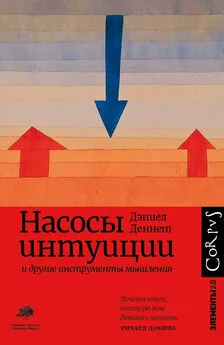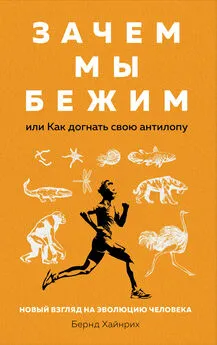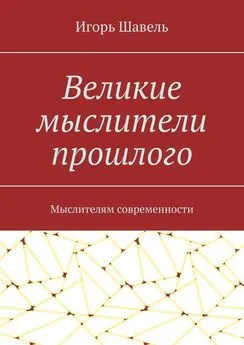Дэниел Клемент Деннет - Разум: от начала до конца. Новый взгляд на эволюцию сознания от ведущего мыслителя современности
- Название:Разум: от начала до конца. Новый взгляд на эволюцию сознания от ведущего мыслителя современности
- Автор:
- Жанр:
- Издательство:Литагент 5 редакция «БОМБОРА» (БЕЗ ПОДПИСКИ)
- Год:2021
- Город:М.
- ISBN:978-5-04-157344-7
- Рейтинг:
- Избранное:Добавить в избранное
-
Отзывы:
-
Ваша оценка:
Дэниел Клемент Деннет - Разум: от начала до конца. Новый взгляд на эволюцию сознания от ведущего мыслителя современности краткое содержание
В своей новой книге «Разум: от начала до конца» выдающийся философ Дэниел К. Деннет, опираясь на открытия современной науки, шаг за шагом исследует возникновение и развитие разума. Мировой бестселлер, получивший мировое признание, будет особенно интересен новому поколению философов и ученых.
Разум: от начала до конца. Новый взгляд на эволюцию сознания от ведущего мыслителя современности - читать онлайн бесплатно ознакомительный отрывок
Интервал:
Закладка:
Claidière N., K. Smith, S. Kirby, and J. Fagot. 2014. “Cultural Evolution of Systematically Structured Behaviour in a Non-Human Primate.” Proceedings of the Royal Society: Biological Sciences. 281 (1797). doi: 10.1098/rspb.2014.1541.
Clark, Andy. 2013. “Whatever Next? Predictive Brains, Situated Agents, and the Future of Cognitive Science.” Behavioral and Brain Sciences 36 (3): 181–204.
–—. 2015. Surfing Uncertainty: Prediction, Action, and the Embodied Mind, New York: Oxford University Press.
Clark, Andy, and David Chalmers. 1998. “The Extended Mind.” Analysis 58 (1): 7–19.
Cloud, Daniel. 2014. The Domestication of Language: Cultural Evolution and the Uniqueness of the Human Animal. New York: Columbia University Press.
Colgate, Stirling A., and Hans Ziock. 2011. “A Definition of Information, the Arrow of Information, and Its Relationship to Life.” Complexity 16 (5): 54–62.
Cope, David, and Douglas R. Hofstadter. 2001. Virtual Music: Computer Synthesis of Musical Style. Cambridge, Mass.: MIT Press.
Coppinger, Raymond, and Lorna Coppinger. 2001. Dogs: A Startling New Understanding of Canine Origin, Behavior, and Evolution. New York: Scribner.
Corballis, Michael C. 2003. “From Mouth to Hand: Gesture, Speech, and the Evolution of Right-Handedness.” Behavioral and Brain Sciences 26 (2): 199–208.
–—. 2009. “The Evolution of Language.” Annals of the New York Academy of Sciences 1156 (1): 19–43.
Coyne, Jerry. 2012. “You Don’t Have Free Will.” Chronicle of Higher Education, March 18.
Crick, Francis. 1994. The Astonishing Hypothesis: The Scientific Search for the Soul. New York: Scribner.
Cronin, Helena. 1992. The Ant and the Peacock: Altruism and Sexual Selection from Darwin to Today. Cambridge: Cambridge University Press.
Crystal, Jonathon D., and Allison L. Foote. 2009. “Metacognition in Animals.”
Comparative Cognition and Behavior Review 4: 1–16.
Darwin, Charles. 1859. On the Origin of Species. Washington Square: New York University Press.
–—. (1862) 1984. The Various Contrivances by Which Orchids Are Fertilised by Insects. Chicago: University of Chicago Press.
–—. 1868. The Variation of Animals and Plants under Domestication. New York: Orange Judd.
–—. 1871. The Descent of Man and Selection in Relation to Sex. London: J. Murray.
Darwin, Charles, and Frederick Burkhardt. 1997. The Correspondence of Charles Darwin. Vol. 10. Cambridge: Cambridge University Press.
Dawkins, Richard. 1976. The Selfish Gene. Oxford: Oxford University Press. 1989 Rev. ed.
–—. 1986. The Blind Watchmaker. New York: Norton.
–—. 2004. The Ancestor’s Tale: A Pilgrimage to the Dawn of Evolution. Boston: Houghton Mifflin.
–—. 2004b. “Extended Phenotype – But Not Too Extended. A Reply to Laland, Turner and Jablonka.” Biology and Philosophy 19: 377–396.
Dawkins, Richard, and John R. Krebs. 1978. “Animal Signals: Information or Manipulation.” Behavioural Ecology: An Evolutionary Approach, 2: 282–309.
de Boer, Bart, and W. Tecumseh Fitch. 2010. “Computer Models of Vocal Tract Evolution: An Overview and Critique.” Adaptive Behaviour 18 (1): 36–47.
Deacon, Terrence William. 1997. The Symbolic Species: The Co-Evolution of Language and the Brain. New York: W. W. Norton.
–—. 2011. Incomplete Nature: How Mind Emerged from Matter. New York: W. W. Norton.
Debner, J. A., and L. L. Jacoby. 1994. “Unconscious Perception: Attention, Awareness, and Control.” Journal of Experimental Psychology. Learning, Memory, and Cognition 20 (2): 304–317.
Defoe, Daniel. 1883. The Life and Strange Surprising Adventures of Robinson Crusoe of York, Mariner: As Related by Himself. London: E. Stock.
Dehaene, S., and L. Naccache. 2001. “Towards a Cognitive Neuroscience of Consciousness: Basic Evidence and a Workspace Framework.” COGNITION 79 (1–2): 1–37.
Dennett, Daniel C. Content and Consciousness. 1969. London and New York: Routledge and Kegan Paul, and Humanities Press.
–—. 1971. “Intentional Systems.” Journal of Philosophy 68 (4): 87–106.
–—. 1978. Brainstorms: Philosophical Essays on Mind and Psychology. Montgomery, Vt.: Bradford Books.
–—. 1978b. “Current Issues in Philosophy of Mind.” American Philosophical Quarterly 15 (4): 249–261.
–—. 1978c. “Why Not the Whole Iguana?” Behavioral and Brain Sciences 1 (1): 103–104.
–—. 1978d. “Beliefs about Beliefs.” Commentary on Premack and Woodruff. Behavioral and Brain Sciences 1 (4) 568–570.
–—. 1980. “Passing the Buck to Biology.” Behavioral and Brain Sciences 19.
–—. 1981. “Three Kinds of Intentional Psychology.” In Reduction, Time and Reality, edited by R. Healey, 37–60. Cambridge: Cambridge University Press.
–—. 1982. “How to Study Consciousness Empirically: Or Nothing Comes to Mind.” Synthese 53: 159–180.
–—. 1983. “Intentional Systems in Cognitive Ethology: The ‘Panglossian Paradigm’ Defended”; and “Taking the Intentional Stance Seriously.” Behavioral and Brain Sciences 6 (3): 343–390.
–—. 1984. Elbow Room: The Varieties of Free Will Worth Wanting. Cambridge, Mass.: MIT Press.
–—. 1984b. “Cognitive Wheels: The Frame Problem of AI.” In Minds, Machines and Evolution, edited by C. Hookway, 129–151. Cambridge: Cambridge University Press 1984.
–—. 1984c. “A Route to Intelligence: Oversimplify and Self-monitor.” Available at http://ase.tufts.edu/cogstud/papers/oversimplify.pdf.
–—. 1987. The Intentional Stance. Cambridge, Mass.: MIT Press.
–—. 1989. “Cognitive Ethology: Hunting for Bargains or a Wild Goose Chase?” In Goals, No-Goals and Own Goals, edited by D. Noble and A. Montefiore, 101–116. Oxford: Oxford University Press.
–—. 1991. Consciousness Explained. Boston: Little, Brown.
–—. 1991b. “Real Patterns.” Journal of Philosophy 88 (1): 27–51.
–—. 1993. “Learning and Labeling.” Commentary on A. Clark and A. KarmiloffSmith, “The Cognizer’s Innards.” Mind and Language 8 (4): 540–547.
–—. 1994. “Get Real.” Philosophical Topics 22 (1): 505–568.
–—. 1995. Darwin’s Dangerous Idea. New York: Simon and Schuster.
–—. 1995b. “Do Animals Have Beliefs?” In Comparative Approaches to Cognitive Sciences, edited by Herbert Roitblat and Jean-Arcady Meyer, 111–118. Cambridge, Mass.: MIT Press.
–—. 1995c. “Hofstadter’s Quest: A Tale of Cognitive Pursuit.” Complexity 1 (6): 9–12.
–—. 1995d. “Animal Consciousness – What Matters and Why.” Social Research 62 (3): 691–710.
–—. 1996. Kinds of Minds: Toward an Understanding of Consciousness. New York: Basic Books.
–—. 1997. “Darwinian Fundamentalism: An Exchange.” New York Review, 64.
–—. 1998. Brainchildren: Essays on Designing Minds. Cambridge, Mass.: MIT Press.
–—. 1998b. “Reply to Nicholas Humphrey, Cave Art, Autism, and the Evolution of the Human Mind.” Cambridge Archeological Journal 8 (2): 184–85.
–—. 1999. Review of Having Thought: Essays in the Metaphysics of Mind, by John Haugeland, Journal of Philosophy 96 (8): 430–5.
–—. 2001. “In Darwin’s Wake, Where Am I?” Proceedings and Addresses of the American Philosophical Association. 75 (2): 11–30.
–—. 2001b. “The Evolution of Culture.” The Monist 84 (3): 305–324.
–—. 2001c. “Are We Explaining Consciousness Yet?” Cognition 79: 221–237.
–—. 2002. “Does Your Brain Use the Images in It, and If So, How?” Behavioral and Brain Sciences 25 (2): 189–190.
–—. 2002b. “Tarbutniks Rule.” Review of Animal Traditions: Behavioural Inheritance in Evolution, 2000 by Eytan Avital and Eva Jablonka, Journal of Evolutionary Biology 15 (2): 332–334.
–—. 2002c. “Explaining the ‘Magic’ of Consciousness. Exploring Consciousness, Humanities, Natural Science, Religion. Proceedings of the International Symposium, Milano, November 19–20, 2001 (published in December 2002, Fondazione Carlo Erba), 47–58.
–—. 2003. Freedom Evolves. New York: Viking.
–—. 2003b. “The Baldwin Effect: A Crane, Not a Skyhook.” In Evolution and Learning: The Baldwin Effect Reconsidered, edited by Bruce H. Weber and David J. Depew. Cambridge, Mass.: MIT Press, 60–79.
–—. 2003c. “Who’s on First? Heterophenomenology Explained.” Journal of Consciousness Studies 10 (9–10): 19–30.
–—. 2005. Sweet Dreams: Philosophical Obstacles to a Science of Consciousness. Cambridge, Mass.: Bradford Book/MIT Press.
–—. 2006. Breaking the Spell: Religion as a Natural Phenomenon. New York: Viking.
–—. 2006b. “The Selfish Gene as a Philosophical Essay.” In Richard Dawkins: How a Scientist Changed the Way We Think, edited by A. Grafen and M. Ridley, 101–115. Oxford: Oxford University Press.
–—. 2006c. “From Typo to Thinko: When Evolution Graduated to Semantic Norms.” In Evolution and Culture, edited by S. Levinson and P. Jaisson 133–145. Cambridge, Mass.: MIT Press.
–—. 2006d. “Two Steps Closer on Consciousness.” In Paul Churchland, edited by Brian Keeley, 193–209. New York: Cambridge University Press.
–—. 2007. “Instead of a Review.” Artificial Intelligence 171 (18): 1110–1113.
–—. 2007b. “Heterophenomenology Reconsidered.” Phenomenology and the Cognitive Sciences 6 (1–2): 247–270.
–—. 2007c. “My Body Has a Mind of Its Own.” In Distributed Cognition and the Will: Individual Volition and Social Context, edited by D. Ross, D. Spurrett, H. Kincaid, and G. L. Stephens, 93–100. Cambridge, Mass.: MIT Press.
–—. 2008. “Competition in the Brain.” In What Have You Changed Your Mind About? edited by John Brockman, 37–42. New York: HarperCollins.
–—. 2009. “Darwin’s ‘Strange Inversion of Reasoning.’” Proceedings of the National Academy of Sciences of the United States of America 106: 10061–10065.
–—. 2009b. “What Is It Like to be a Robot?” Review of Guilty Robots, Happy Dogs, by David McFarland. BioScience 59 (8): 707–709.
–—. 2010. “The Evolution of Why?” In Reading Brandom: On Making It Explicit, edited by B. Weiss and J. Wanderer, 48–62. New York: Routledge.
–—. 2012. “The Mystery of David Chalmers.” Journal of Consciousness Studies 19 (1–2): 86–95.
–—. 2012b. Erasmus: Sometimes a Spin Doctor Is Right. Amsterdam: Praemium Erasmianum Foundation.
–—. 2012c. “Cycles.” In This Will Make You Smarter, edited by J. Brockman and Edge.org, 110–119. New York: Harper Torchbook.
–—. 2013. Intuition Pumps and Other Tools for Thinking. New York: W. W. Norton.
–—. 2013b. “Aching Voids and Making Voids.” Review of Incomplete Nature: How Mind Emerged from Matter, by Terrence W. Deacon, Quarterly Review of Biology 88 (4): 321–324.
–—. 2013c. “Expecting Ourselves to Expect: The Bayesian Brain as a Projector.” Behavioral and Brain Sciences 36 (3): 209–210.
–—. 2013d. “Turing’s ‘Strange Inversion of Reasoning.’” In Alan Turing: His Work and Impact, edited by S. Barry Cooper and J. van Leeuwen, 569–573. Amsterdam: Elsevier.
–—. 2014. “Daniel Dennett on Free Will Worth Wanting.” In Philosophy Bites Again, edited by D. Edmonds and N. Warburton, 125–133. New York: Oxford University Press.
–—. 2014b. “Reflections on Free Will.” Review of Free Will, by Sam Harris. Naturalism.org.
–—. 2015. “The Singularity – An Urban Legend?” In What to Think about Machines That Think, edited by John Brockman, 85–88. New York: HarperCollins.
Читать дальшеИнтервал:
Закладка:
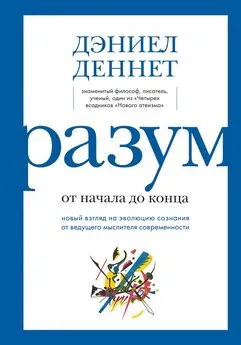

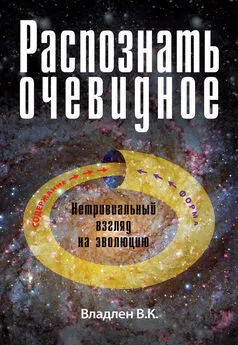
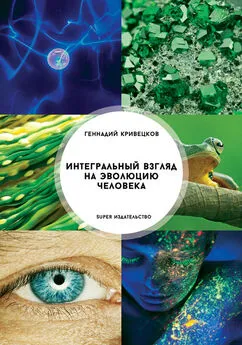

![Берндт Хайнрих - Зачем мы бежим, или Как догнать свою антилопу [Новый взгляд на эволюцию человека] [litres]](/books/1057566/berndt-hajnrih-zachem-my-bezhim-ili-kak-dognat-svo.webp)
![Джеффри Миллер - Соблазняющий разум [Как выбор сексуального партнера повлиял на эволюцию человеческой природы] [litres]](/books/1070954/dzheffri-miller-soblaznyayuchij-razum-kak-vybor-seksu.webp)

